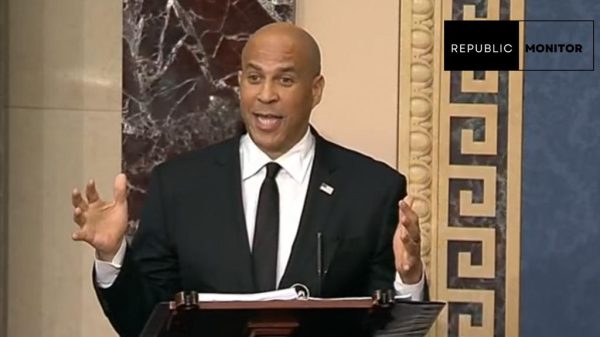Amber Mclaughlin, 49, is scheduled to die by injection on Tuesday for killing a former girlfriend n 2003 if Missouri Governor Mike Parson does not grant clemency. Her lawyer, Larry Komp, revealed that no court appeals are pending. However, the review of the clemency request is still underway.
The clemency request includes several issues, like McLaughlin’s distressing childhood citing her adoptive father used a stun gun on her, and struggling with mental health issues which resulted in depression and prompted her to suicide multiple times. The clemency also includes reports of being diagnosed with gender dysphoria, a condition of unease because of a mismatch between biological sex and gender identity.

Image Source: The Advocate
McLaughlin’s attorney on Monday said: “We think Amber has demonstrated incredible courage because I can tell you there’s a lot of hate when it comes to that issue,” but also stated that her sexual identity is not the main focus.
McLaughlin, before transitioning, was in a relationship with Beverly Guentherwho worked at the suburban St. Louis office. The 45-year-old victim also obtained a restraining order. On November 20, 2003, Guenther’s neighbour reported police when she did not arrive home. Police officials then found a broken knife handled near the car and a series of blood. A day later, McLaughlin led police to the location of the dead body where it had been dumped.
McLaughlin was charged with first-degree murder in 2006 and was sentenced to death after a jury deadlocked on the sentence. In 2016 in a court hearing, Mclaughlin was again sentenced to death, but a federal appeals court panel rehabilitated the death penalty in 2021.

Image Source: St. Louis Public Radio
Jessica Hicklin, who knew McLaughlin before transitioning and was imprisoned with Amber for around a decade, said she turned to her for guidance on problems relating to mental health and security concerns inside a male-dominated maximum security prison.
Hicklin said: “There’s always paperwork and bureaucracy, so I spent time helping her learn to file the right things and talk to the right people,” “We would sit down once a week and have what I referred to as girl talk,” Hicklin said. “She always had a smile and a dad joke. If you ever talked to her, it was always with the dad jokes.”
Together they also talk about the challenges a transgender person faces in a male prison, such as dealing with offensive comments, getting female items available, and safety concerns. Hicklin, while explaining McLaughlin’s insecurities, said: “Definitely a vulnerable person,” Hicklin said. “Definitely afraid of being assaulted or victimized, which is more common for trans folks in the Department of Corrections.”















